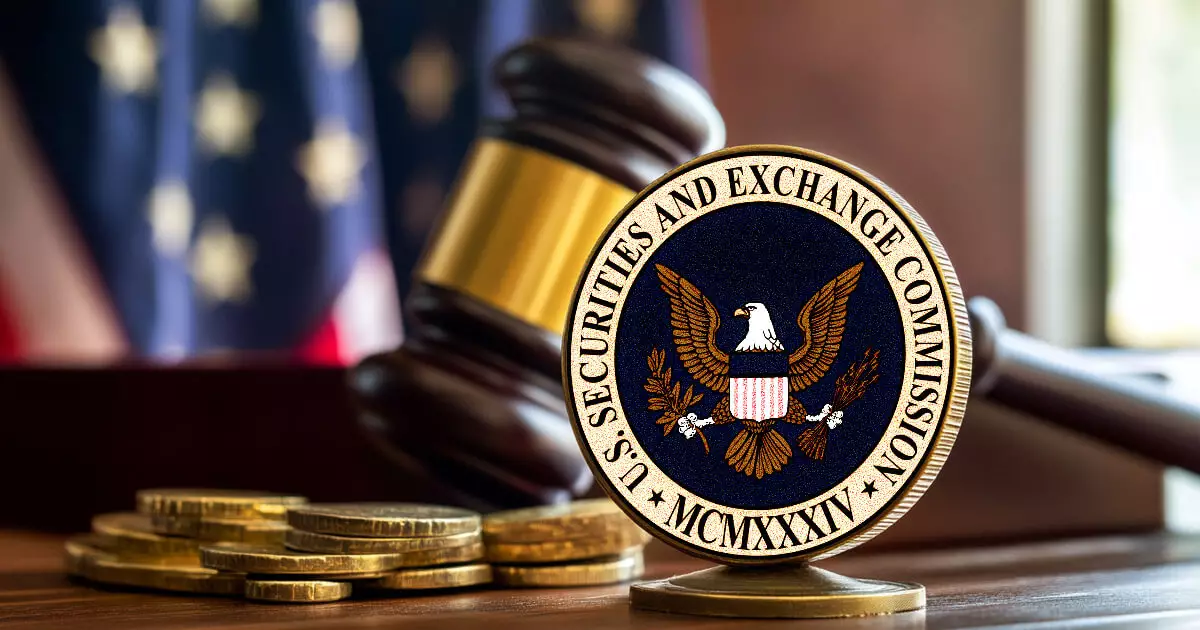The rapid evolution of cryptocurrencies and blockchain technology has outpaced regulatory frameworks worldwide, presenting an ongoing challenge for market participants and regulators alike. The recent charge by the Securities and Exchange Commission (SEC) against Cumberland DRW, a prominent crypto market maker, serves to highlight this precarious landscape. With a reported trading volume exceeding $2 billion in cryptocurrency since March 2018, the SEC alleges that Cumberland operated as an unregistered securities dealer, thereby violating existing federal securities laws.
As cryptocurrencies continue to blur the lines between traditional financial instruments, the SEC maintains that the nature of digital assets necessitates regulatory oversight broadly applicable to all securities. Jorge G. Tenreiro, the SEC’s acting chief of the Crypto Assets and Cyber Unit, articulated the commission’s position succinctly: registrations are imperative for all dealers in securities, including those in the crypto domain. This case is emblematic of a broader struggle within the industry—the classification of digital assets and whether they should be viewed as commodities or securities.
Cumberland DRW’s business model, which encompasses over-the-counter (OTC) markets, crypto derivatives, and bilateral trading of crypto forwards, positions it as a key liquidity provider in the digital assets sector. Yet, the SEC’s complaint contends that its actions reflected the sale and offer of securities, therefore requiring adherence to regulatory frameworks designed to protect investors. The compliance narrative presented by Cumberland holds that they have historically engaged with the SEC and that they possess a robust compliance framework.
However, the SEC’s claims challenge this perception and introduce serious allegations that could have lasting repercussions for Cumberland’s operations. By seeking permanent injunctive relief, disgorgement of profits, and civil penalties, the SEC asserts its authority and underscores the gravity of adhering to securities law within the rapidly growing crypto market. This enforcement action acts as a wakeup call not just for Cumberland but for all players in the crypto arena, emphasizing the need for clarity and compliance amidst regulatory uncertainty.
Clashing Perspectives on Innovation and Regulation
Cumberland has pushed back against the SEC’s claims, asserting through public statements that regulatory efforts, including their latest move, threaten to stifle innovation within the cryptocurrency space. This sentiment is prevalent in the crypto community, where many argue that stringent regulations could lead to an impediment in technological advancement and market growth. Cumberland’s insistence that they do not plan to alter their operational strategies post-SEC action reiterates an emblematic resistance within the crypto industry against perceived overreach.
Echoing the sentiment that the regulatory landscape is disorganized, Cumberland argues that the shifting interpretations of what constitutes a security continue to create a moving target for compliance. Their claim that it took five years of dialogues with the SEC before the complaint outlined specific allegations suggests frustration over ambiguous regulatory assessments which fail to provide coherent guidance for businesses venturing into the crypto sector.
Compounding this case’s complexity is the historical precedent surrounding Cumberland and its parent company, DRW. The previous market manipulation allegations laid against DRW by the Commodity Futures Trading Commission (CFTC) demonstrated the long-standing relationship between the regulatory body and the firm. Though the CFTC ultimately failed to substantiate its claims, the specter of past allegations adds weight to the current scrutiny.
In light of the SEC’s sustained vigilance, there is a palpable concern within the crypto community regarding the intricate web of regulations that govern digital assets. The juxtaposition of innovation against regulation continues to shape the ongoing discourse in the cryptocurrency arena. What remains to be seen is whether this enforcement action serves as a deterrent or as a herald of a more structured regulatory environment that could both validate and challenge the legitimacy of crypto enterprises moving forward.
Overall, the SEC’s case against Cumberland DRW stands as a critical juncture for the intersection of cryptocurrency and regulation—a moment that may dictate the momentum of compliance and innovation for years to come.

